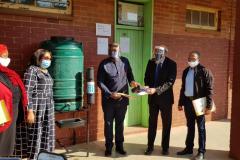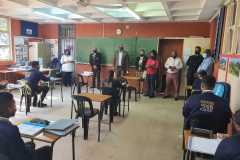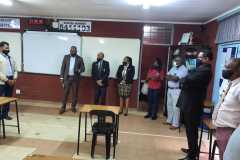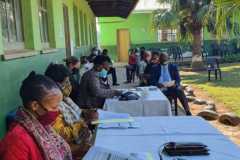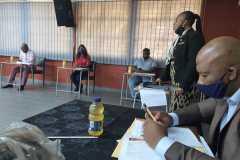KZN LEGISLATURE MPLs ASSESS REOPENING OF SCHOOLS AMIDST THE COVID-19 PANDEMIC
KZN LEGISLATURE MPLs ASSESS REOPENING OF SCHOOLS AMIDST THE COVID-19 PANDEMIC
Members of the KwaZulu-Natal Legislature this morning are visiting schools throughout the province to assess their state of readiness after more than two months of closure due to the COVID-19 pandemic.
The visits, which begins today and end on the 11th of June 2020, are part of the legislature’s oversight responsibility.
These visits are taking place for the first time since the outbreak of the COVID-19 pandemic.
Due to the outbreak of the pandemic, teams will be much smaller than in the previous years for the purposes of observing the COVID-19 Regulations which include maintaining social distance during the meetings.
Honourable Members are checking various issues including schools’ readiness and the provision of essentials such as Personal Protective Equipment (PPEs), sanitizers and the new sitting arrangements in the classrooms in line with the Department of Basic Education directive issued before the reopening of the schools.


